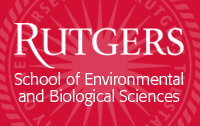Main Content
Recertification Course
This course is offered every quarter in New Jersey. Re-certification every 24 months is required by the New Jersey Noise Code (at N.J.A.C. 7:29-2.11). Many jurisdictions outside of New Jersey adhere to this practice as well, even though it may not be required by their code. Officers who are not regularly engaged in noise enforcement do well to have a refresher.
Recertification Expiration Rules
Per N.J.A.C. 7:29-2.11, an employee is considered qualified to make noise measurements and enforce the State’s Noise rules or municipal noise ordinances if they have completed a noise certification course and be recertified at least every two years.
If it has been more than two years since you completed the initial certification course or since you completed your last recertification course, you must request an extension from the NJDEP before you can enroll in the recertification course. If you are not granted an extension, you will have to retake the initial certification course.
Recertification Extensions: The NJDEP shall provide an extension for recertification on a case-by-case basis beyond the two-year period for a person until the next time the recertification course is offered. Such requests must be made in writing to the NJDEP at least 10 working days prior to the expiration of the person’s certification.
Need an extension request form? You may request the form from Eric Zwerling, Director of the Rutgers Noise Technical Assistance Center, at 848-932-5782 or zwerling@envsci.rutgers.edu.
Community Noise Enforcement
1-Day Recertification
- The Fundamentals of Sound (Brief Review)
- Intensity
- Units of Measurement and Reporting
- Sound Level Meter Calculations of Sound Pressure Levels
- Range of Human Hearing
- Frequency
- Units of Measurement and Reporting
- Range of Human Hearing
- Most Annoying Frequencies
- Relative Response to Frequencies and Weighting Systems
- Operation of Sound Level Meter(s)
- Field Calibration
- Timing
- Manufacturer’s Requirements
- Proper Technique
- Use of Meter
- Acceptable Weather Conditions
- Parameters for Valid Readings
- Measuring and Recording
- Intensity
- Measurement of Neighborhood Residual Sound Levels
- Neighborhood Residual vs. Extraneous Noise
- Strategies for Measurement of Background in Various Situations
- The Mathematics of Sound Level Measurement
- Determination of Optimal Measurement Time Intervals
- Impact of Interval Choice on Final Calculated Levels
- Calculation of Source Sound Level from Measured Total and Neighborhood Residual Sound Levels
- Meter/Reader Tolerances
- Noise Measurement Report Form (Line-by-Line Review of Proper Completion)
- New Jersey Codes
- New Jersey Administrative Code – Title 7, Chapter 29, Subchapter 1 – Noise Control (“NJAC 7:29”)
- NJAC 7:29 Subchapter 2 – Procedures for the Determination of Noise from Stationary Sources
- Review of Definitions
- Word-by-Word Review of Codes
- Specific Notation of Reporting Requirements Generated by Codes
- Areas of Potential Courtroom Challenge
- Re-adoption with Amendments – August 6, 2007
- Review Changes: Definitions, Exceptions, Enforcement
- Model Ordinance for the State of New Jersey
- Major Departures from NJAC 7:29
- Enforcement
- (N.J.A.C. 7:29-1.7)
- Fines, injunctive relief, major vs. minor violations
- Grace Period (CEHA agencies and their subcontractors)
- Performance Violation vs. Nuisance Violation
- Talking to the Facility Manager – or- The Art of the Bluff, and the Satisfied Complainant
- Consent Orders
- NJDEP Guideline to Conduct a Noise Control Program for Municipalities and CEHA Agencies
- Practical Field Exam
- Written Exam
Rutgers Noise Technical Assistance Center (RNTAC)
School of Environmental and Biological Sciences
Rutgers, The State University of New Jersey
14 College Farm Rd., New Brunswick, NJ 08901-8551
Environmental & Natural Resource Sciences Bldg (ENRS) | 848-932-5784
Questions? Contact Pamela Springard-Mayer at pspring@rutgers.edu
